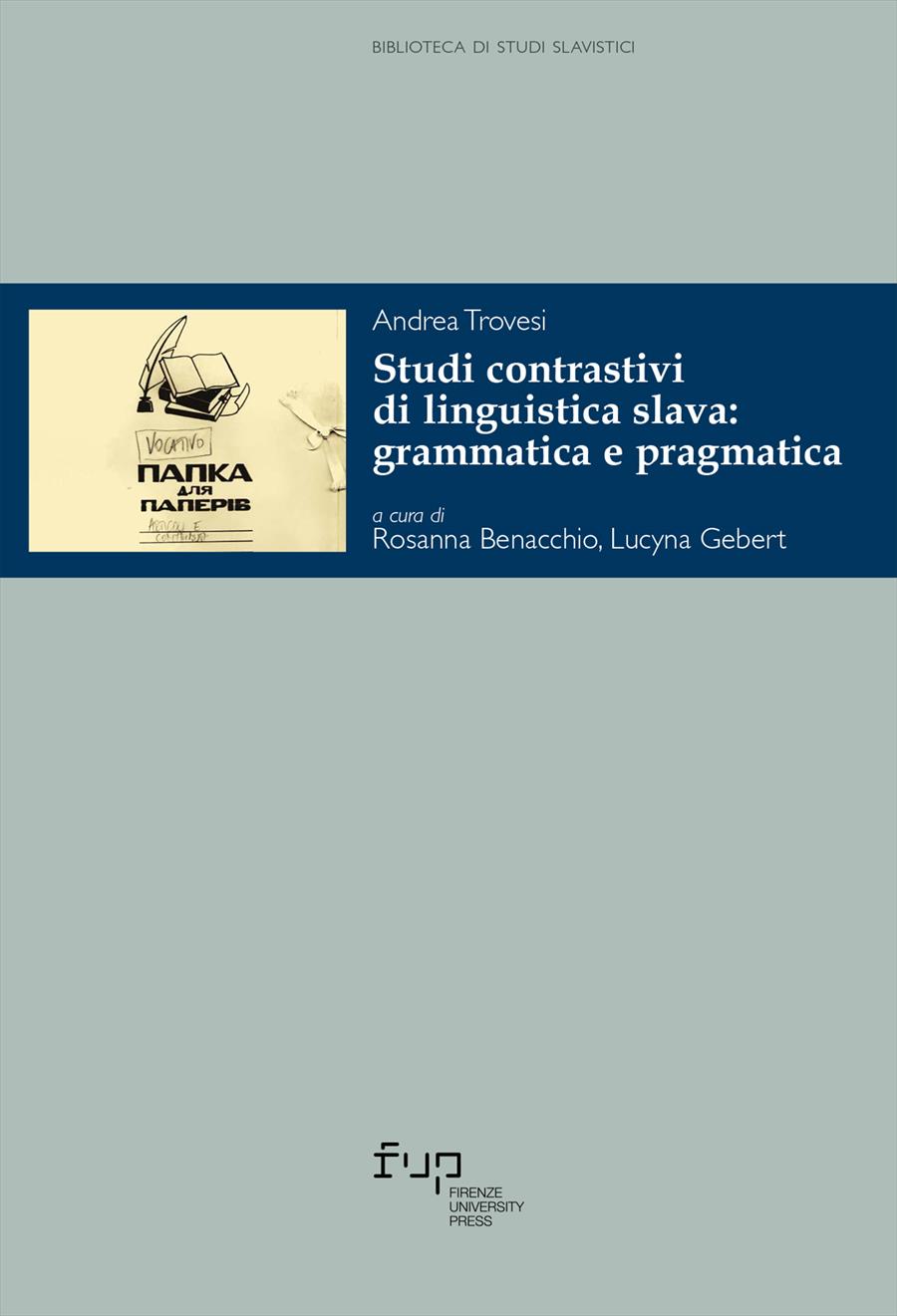Forme non normative di vocativo in ceco. Accettabilità e valori stilistico-pragmatici
- Andrea Trovesi
- © 2023 Author(s) |
- CC BY 4.0
- DOI: 10.36253/979-12-215-0216-9.09
In Czech the vocative case is still obligatory and the set of vocative endings is best preserved amongst Slavic languages. However, in spoken Czech the following irregularities in the usage of the vocative can be observed: a) substitution of the nominative for the vocative on the second part of masculine addressative expressions such as ‘pan + surname’; b) substitution of the nominative for the vocative with single names; c) “new” vocative forms created by dropping final vowels on female first names. The article reports the results of a study on such irregular forms that has been carried out through a questionnaire, and aims to investigate their acceptability as well as to ascertain how they are perceived by native speakers especially with reference to their pragmatic values.
- Keywords:
- Vocative case,
- Spoken Czech,
- Pragmatics choices,
Sapienza University of Rome, Italy - ORCID: 0000-0001-7107-5657
- Brown, P., Levinson, S.C. 1987. Politeness: some universals in language usage. Cambridge.
- Havránek, B., Jedlička, A. 1981. Česká mluvnice. Praha.
- Karlík, P., Nekula, M., Rusínová, Z. (eds.). 1995. Příruční mluvnice češtiny. Praha.
- Krčmová, M. 1998. Formálni morfologie. In J. Kořenský (ed.). Český jazyk. Opole: 164-177.
- Pastyřík, S. 2003. Studie o současných hypokoristických podobách rodných jmen v češtině. Hradec Králové.
- Trovesi, A. 2008. "Il vocativo nelle lingue slave: un quadro articolato". In A. Trovesi (a cura di). Le lingue slave tra innovazione e conservazione: grammatica e semantica (I Incontro di Linguistica slava; Bergamo, 4-5 maggio 2007). Linguistica e Filologia 26: 207-34.
- Trovesi, A. 2010. Instabilità categoriale e oscillazioni funzionali del vocativo nelle lingue slave. Casi di convergenza funzionale tra vocativo e vezzeggiativi. In R. Benacchio, L. Ruvoletto (a cura di). Lingue slave in evoluzione. II Incontro di Linguistica slava. Padova: UNIPRESS: 179-190.
- Trovesi, A. 2012. Desinenze di vocativo come formanti antroponimici. I nomi propri maschili in -e e -o nelle lingue slave. In F. Biagini, S. Slavkova (a cura di). Contributi allo studio della morfosintassi delle lingue slave. Bologna: Bononia University Press: 394-406.
- Trovesi, A. 2013. Pragmatic Aspects of the Vocative-Nominative Competition in Addressative Function across Slavic Languages. In M. Garzaniti, A. Alberti, M. Perotto, B. Sulpasso (a cura di). Contributi Italiani al XV Congresso Internazionale degli Slavisti (Minsk, 20-27 agosto 2013). Firenze: University Press: 211-227.
Chapter Information
Chapter Title
Forme non normative di vocativo in ceco. Accettabilità e valori stilistico-pragmatici
Authors
Andrea Trovesi
Language
Italian
DOI
10.36253/979-12-215-0216-9.09
Peer Reviewed
Publication Year
2023
Copyright Information
© 2023 Author(s)
Content License
Metadata License
Bibliographic Information
Book Title
Studi contrastivi di linguistica slava: grammatica e pragmatica
Editors
Rosanna Benacchio, Lucyna Gebert
Authors
Andrea Trovesi
Peer Reviewed
Number of Pages
204
Publication Year
2023
Copyright Information
© 2023 Author(s)
Content License
Metadata License
Publisher Name
Firenze University Press
DOI
10.36253/979-12-215-0216-9
ISBN Print
979-12-215-0215-2
eISBN (pdf)
979-12-215-0216-9
Series Title
Biblioteca di Studi Slavistici
Series ISSN
2612-7687
Series E-ISSN
2612-7679
